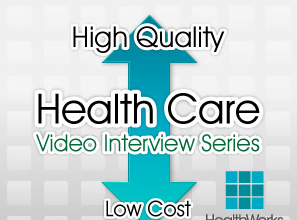My colleague Meghan Searl collaborated with me on the psychology framework discussed herein.
My colleague Meghan Searl collaborated with me on the psychology framework discussed herein.
I don’t spend much time on Facebook. Its not that I’m antisocial, but on a given day if I get through my email inbox by 10 PM, I feel good about myself. That leaves little time for social networking. I haven’t played Angry Birds or Farmville for the same reason. I just have other priorities. I grew up in a family of plain-spoken, simple Vermonters. My dad was a kind and gentle man, but when he raised his voice we all took notice. And, because of his ‘kinder-gentler’ side and plain-spoken character, my brother and I took him quite seriously and felt it was wise to comply with his wishes. Also, my folks both had a deep sense of the value of good health and strove to achieve a healthy lifestyle.
I believe this combination of circumstances and history is what is behind my individual connected health psychology. I am responsive to authority – a compliant fellow who sometimes forgets, but when reminded complies.
In Personalized Prevention, Part I, I talked about the power of genetic data combined with the phenotypic mapping that connected health tools give us to micro-segment the population to a level where we have a completely unique, individual genotypic and phenotypic profile. The example I used was obesity, suggesting that with these two technologies colliding, we’ll have the opportunity to identify individuals at risk for weight gain early in life and put them on connected health programs to keep them trim. Many readers pushed back and the essence of the push back was, “micro-segmentation alone is not the answer. Even providing individuals with data on their caloric expenditure in the context of their risk for weight gain will not solve this problem.”
Folks, I couldn’t agree more. The medium of blogging is best suited to ‘bite-sized’ writing and the first bite in this series was about the micro-segmentation piece. Today I want to spend time on the psychology of engagement, as I believe it is critical to the success of connected health and can also be highly individualized.
The first point to re-emphasize is that connected health data alone do not solve any problems, except perhaps for the very small group of highly motivated fitness buffs and quantified selfers (maybe 10% of the population). There was a time when companies in this space boasted that they could ‘get biometric data into the PHR or EMR.’ Work done at the Center for Connected Health and by others has demonstrated that this is nearly meaningless. We’ve relearned the old adage that data is not information.
Of course, it’s all about what you do with the connected health data. Objective data inputs are a critical component of the solution – self-reported data is also nearly useless – but the success of connected health programs is all about the psychology of how we engage program participants in these data in order to motivate them to improve their health.
Most companies who have focused on engagement have not bothered to include the objective data stream because of the cost of sensors and the complexity of integration. Most have also touted one engagement strategy or another as the key to success. The options these days seem to be: gamification, social networking, coaching, reminders, incentives and punishments.
Lets go back to me as an example. If my employer rolled out a wellness program and the engagement tool was social networking, I am afraid I would not be successful in it. Likewise for competitions/games. But set me up with a reminder system and an automated coach with an authoritarian tone and I will improve my health behavior.
Purveyors of wellness programs tout their success, e.g., ‘40% engagement after 6 weeks.’ My question is what about the 60% who didn’t engage? It seems to me we understand the tools and triggers to get closer to 100%, but we must admit that one size does not fit all and do some behavioral segmentation at the outset to tailor programs to what individual buttons need to be pushed.
Healthrageous comes the closest to offering this type of approach (I say this with as much objectivity as possible, as a co-founder and share holder). Their vision is to know so much about you that they can anticipate the engagement experience that gets you involved in a way that you feel they know you intimately. This will come about through a machine learning environment and as more and more participants take advantage of their programs, they’ll do better and better at this. In the meantime, I think we can start with a simple set of questions designed to paint a profile of each individual that is akin to the one I wrote describing me at the beginning of this post. We’re working on that at the Center. I am excited to share our learning as we go forward.






